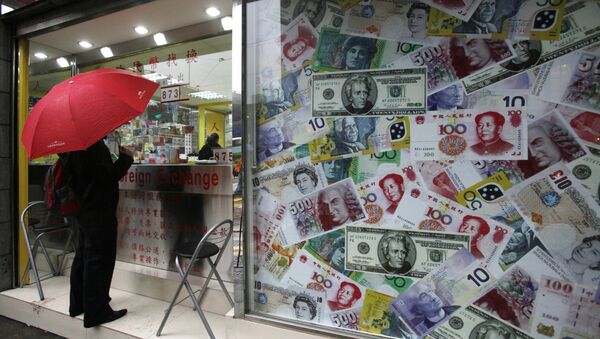For instance, Moscow and Beijing have been replacing dollar transactions with ruble and yuan ones in their trade since 2011.
In 2014, the central banks of Russia and China inked a $23.5-billion three-year swap agreement.
After the West imposed anti-Russian sanctions, Russia President Vladimir Putin said: "The use of ruble and yuan will weaken the role of US dollar."
It is obvious that Russia and China are building up a sustainable alliance for global de-dollarization, and the US is certainly nervous, the article read.
The de-dollarization will give Russia and China easier access to capital markets and insulate them from financial manipulation by Washington, geopolitical analyst Mahdi Darius Nazemroaya wrote in an article for the Strategic Culture Foundation.
"As the financial architecture of the world is being altered by China and Russia, the US dollar is gradually being neutralized as one of Washington’s weapon of choice," Nazemroaya explained.
As the post-WWII US-dominated international monetary system is threatened, Washington is striking back with propaganda and financial wars against Russia and China, the author said.
"Wall Street should be worried about the economic problems at home in the US instead of trying to undermine China. The talk about the slowing down of the Chinese economy in part is distraction," he wrote.
Last March, the Russian Central Bank sold nearly 20 percent of its $125 billion US treasuries holdings. China is also aggressively selling its US treasuries holding which currently exceed $1 trillion.
In August, China’s central bank put ruble into circulation in Suifenhe City, Heilongjiang Province, launching a pilot ruble-yuan program. Ruble was introduced to replace US dollar.
Recently, Russia drafted a bill aimed at eliminating dollar and euro payments in trade between CIS countries.
According to a Kremlin statement, the legislation "would help expand the use if national currencies in foreign trade payments and financial services and thus create preconditions for greater liquidity of domestic currency markets."
Russian and China are increasingly trading in their national currencies to increase economic stability and reduce dependency on dollar and euro.
If the trend includes enough other countries the dollar strength will be significantly weakened and US imperial ambitions will be curbed, the article assumes.




